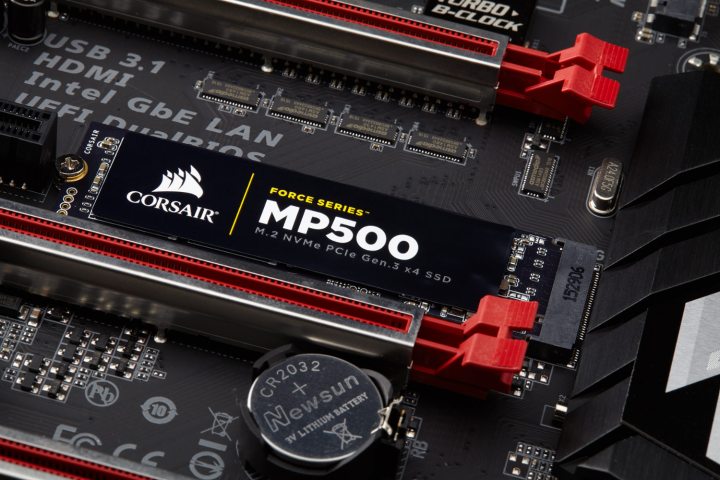
The new SSDs are in the popular — and very compact — M.2 2280 form factor (that’s 22mm by 80m) and come in three different sizes: 120GB, 240GB and 480GB. According to Corsair’s internal testing, the Force Series is capable of hitting read speeds of 3,000 megabytes per second and write speeds of 2,400 megabytes per second, which would put them well ahead of similarly sized SSDs in terms of speed.
However, those numbers will undoubtedly vary during actual use – most of the SSDs we test in our product reviews rarely hit even half those speeds. Still, Corsair’s latest Force Series lineup packs some impressive technology under those very tiny hoods.
Using Corsair’s proprietary technologies — SmartECC, SmartRefresh, and SmartFlush — the hard drive manufacturer claims that this latest range of SSDs are not only the fastest they’ve produced but among the most reliable. These technologies safeguard against data corruption caused by unexpected power loss or unsafe shutdown, like when your PC hard locks while trying to exit a game, and you decide to force it to shut down even though you know you shouldn’t.
The new Force Series MP500 range is also fully compatible with Corsair’s SSD Toolbox, a utility for monitoring drive health and stats in real time – so you can watch those ultrafast read/write speeds at work. The Force Series is cross-compatible with MacOS, Windows, and even Linux without any special or proprietary drivers required.
Editors' Recommendations
- Why new SSDs are melting down, and how to protect yours
- This new TeamGroup SSD is one of the fastest drives ever


